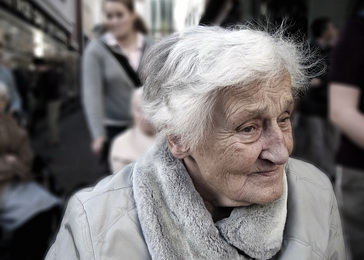 Serbia is 66th in the world among the 96 countries ranked based on the social and economic welfare of the elderly, as shown by the Global AgeWatch Index for 2015, published on 9 September. Like other countries, Serbia is also impacted by population aging – now every fourth person is over 60 years of age, and by mid-century it will be one in three. The top of the list for quality of life of the elderly globally is held by Switzerland, and at the bottom is Afghanistan.
Serbia is 66th in the world among the 96 countries ranked based on the social and economic welfare of the elderly, as shown by the Global AgeWatch Index for 2015, published on 9 September. Like other countries, Serbia is also impacted by population aging – now every fourth person is over 60 years of age, and by mid-century it will be one in three. The top of the list for quality of life of the elderly globally is held by Switzerland, and at the bottom is Afghanistan.
In 2014 Serbia was in 78th place, reminds the organization HelpAge International, through its national partner for Serbia, the Red Cross. Serbia was 64th globally in 2013 regarding quality of life of the elderly.
Countries were assessed based on four criteria – security of income for the elderly, healthcare, personal capacities and elements of the environment. Each of these criteria contains several indicators.
Serbia is best placed in income security, where it is 49th globally. This placement is contributed to by the fact that 81% of the elderly are receiving pensions and that the poverty rate among the elderly of 14% is just over the average 12%. According to the criterion of elderly health, Serbia is 62nd and all healthcare indicators are around average values. Regarding a stimulating environment for the elderly Serbia is 67th in the world, with 54% of the elderly unsatisfied with civil liberties, and 50% with public transportation. Serbia ranks the worst for the criterion of personal capacities, 80th in the world. There was an increase compared to the 2014 index, but due to the review of data on educational levels.
According to data from the index, in Serbia there are 2.2 million people over 60 years of age. Their share in the population in 2014 was 24.4%, expected to grow to 27.2% by 2013, and 32.3% by 2050. A person aged 60 in Serbia right now can expect to live another 19 years, with 15.7 in good health, the analysis estimates.
As stated in the report section on Serbia, this year the activists of the campaign “Old Age Requires Action” will request the clear definition of protocols to prevent elderly abuse and discrimination at the local level, based on the existing recommendations by the competent ministry.
Source: EurActiv.rs
 Government of the Republic of Serbia
Government of the Republic of Serbia















 pdf [271 KB]
pdf [271 KB]
Leave a Comment